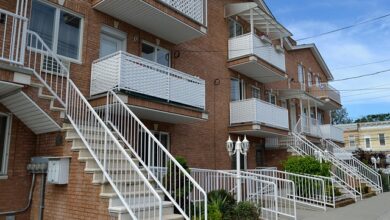How to Save Money on Homeowners Insurance Premiums in Canada

Homeownership is a significant milestone, but it also comes with ongoing expenses—homeowners insurance being one of the most important. While this coverage protects your property and belongings from unforeseen events like fires, theft, or natural disasters, the premiums can sometimes feel burdensome. Fortunately, there are several strategies you can employ to reduce your homeowners insurance costs without compromising on essential coverage. In this article, we’ll explore practical tips to help you save money on your premiums in Canada.
1. Shop Around for Quotes
One of the simplest ways to save on homeowners insurance is by comparing quotes from multiple providers. Insurance rates can vary significantly between companies due to differences in underwriting criteria, discounts, and pricing models. Use online comparison tools or consult with brokers to gather competitive offers.
Pro Tip: Don’t just focus on price; consider customer service ratings and claims handling efficiency as well.
2. Increase Your Deductible
Your deductible is the amount you pay out-of-pocket before your insurance kicks in. Opting for a higher deductible can lower your annual premium. For example, increasing your deductible from $500 to $1,000 could result in substantial savings over time.
Caution: Ensure you have enough savings to cover the higher deductible in case of a claim.
3. Bundle Your Policies
Many insurers offer discounts when you bundle multiple policies, such as home and auto insurance, under the same provider. Known as a “multi-policy discount,” this approach not only simplifies your billing process but also reduces your overall costs.
Example: If you already have car insurance with a company, ask about bundling options for additional savings.
4. Improve Home Security
Installing security features can make your home less vulnerable to theft and damage, which may qualify you for discounts. Common upgrades include:
- Burglar alarms
- Smoke detectors
- Smart home devices (e.g., video doorbells, smart locks)
- Fire extinguishers
Tip: Check with your insurer to confirm which upgrades qualify for discounts.
5. Mitigate Natural Disaster Risks
Canada is prone to various natural disasters, such as floods, earthquakes, and wildfires. Taking steps to mitigate these risks can reduce your premiums. For instance:
- Install sump pumps to prevent basement flooding.
- Reinforce your roof to withstand high winds.
- Clear brush and debris around your property to minimize wildfire risk.
Note: Some insurers offer specific discounts for homes in low-risk areas or those equipped with protective measures.
6. Maintain a Good Credit Score
In many provinces, insurers use credit scores as part of their underwriting process. A strong credit score signals financial responsibility, which can lead to lower premiums. Pay bills on time, reduce debt, and monitor your credit report regularly to maintain a healthy score.
Important: Credit-based insurance scoring is not allowed in all provinces, so check local regulations.
7. Review and Update Your Coverage
Over time, the value of your home and belongings may change, affecting your insurance needs. Regularly reviewing your policy ensures you’re not over-insured or paying for unnecessary coverage. For example:
- Adjust your contents coverage if you’ve sold valuable items.
- Remove coverage for structures you no longer own (e.g., sheds).
Reminder: Avoid reducing coverage too much, as being underinsured can leave you financially exposed after a claim.
8. Take Advantage of Loyalty Discounts
Staying with the same insurer for an extended period can sometimes pay off. Many companies reward long-term customers with loyalty discounts or reduced renewal rates. However, be cautious—if your current provider’s rates seem unusually high, it might still be worth comparing other options.
Balance: Weigh loyalty rewards against potential savings from switching providers.
9. Opt for a Claims-Free Discount
Some insurers offer discounts to policyholders who haven’t filed claims in recent years. Maintaining a claims-free record demonstrates that you’re a low-risk customer, which can translate into savings.
Strategy: For minor damages, consider whether filing a claim is worth it, given potential increases in future premiums.
10. Choose a Higher-Rated Home Construction Type
The materials used to build your home can impact your insurance costs. Homes constructed with fire-resistant materials like brick or concrete are often eligible for lower premiums compared to those made of wood.
Renovation Tip: If you’re planning renovations, consider using durable, hazard-resistant materials.
11. Live in a Low-Risk Area
Where you live plays a significant role in determining your homeowners insurance premiums. Properties located in areas prone to crime, flooding, or severe weather typically incur higher costs. If possible, choose a neighborhood with lower risks to save on insurance.
Research: Look into crime rates, proximity to emergency services, and historical weather patterns before buying or renting.
12. Ask About Available Discounts
Insurance companies offer a variety of discounts that aren’t always advertised. Be proactive and inquire about:
- Senior discounts (for retirees aged 55+).
- Non-smoker discounts.
- New home discounts (for properties less than 10 years old).
- Energy-efficient home discounts (e.g., solar panels, energy-efficient appliances).
Action Step: Call your insurer or agent to explore all available savings opportunities.
13. Pay Annually Instead of Monthly
Paying your premium annually instead of monthly can save you money. Many insurers charge administrative fees for monthly payments, which add up over time. If you can afford it, opt for an annual payment plan.
Benefit: This approach also eliminates the risk of missing payments, which could lead to policy cancellation.
14. Consider Usage-Based Coverage
If you own a vacation home or rent out part of your property, consider specialized coverage tailored to your usage. For example:
- Seasonal homes may qualify for reduced premiums during off-season months.
- Renting a room? Inform your insurer to ensure proper liability coverage.
Warning: Misrepresenting your home’s use can void your policy in the event of a claim.




